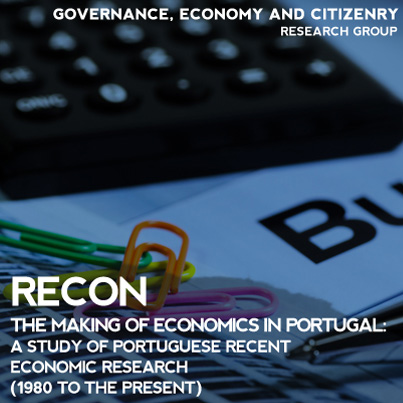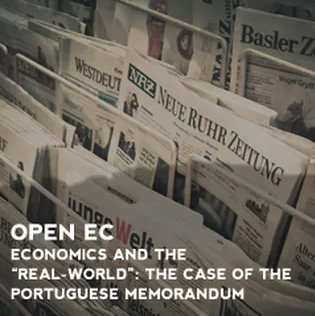Rebuilding solidarity in an age of job dualisation
Researcher
A growing body of comparative political economy literature argues that western countries are increasingly dualised. According to this strand, the gap between workers is expanding. Some workers are covered by collective agreements, have standard contracts and have access to standard social protection, while others hold atypical contracts, have access to a second-tier welfare state and are not covered by collective agreements. This dualisation process results from labour legislation reforms that allowed the spread of atypical contracts; welfare state reforms, that allowed the creation of residual, income-tested, and in-work benefits for some individuals; and collective bargaining reforms that eroded collective bargaining coverage. The covid-19 pandemic has made even clearer the need to rethink these divisions, which are characterised by the existence of winners and losers. The guiding question of this project is: under which conditions can dualisation be overcome and solidarity fostered? The project focusses on one key dimension of dualisation: the regulation and use of atypical contracts, i.e. fixed-term contracts, self-employment and agency work. From our perspective, the type of contract is a key element of dualisation, and is of paramount importance to explain labour market inequalities and the disintegration of solidarity in the sphere of work. Thus, when speaking about reforms that foster solidarity, we mean inclusive reforms that improve the protection provided by atypical contracts. The main argument of the project is that fostering solidarity involves three levels of action: labour law (national), collective bargaining (meso and micro) and workplace-level arrangements (micro). Labour law plays a decisive role in establishing the conditions under which atypical contracts can be used. Collective agreements are important because they can define better (or worse) conditions than those established in the labour code regarding the use of atypical contracts. And it ...
Project Information
2021-03-01
2025-02-28
Project Partners
- DINAMIA'CET-Iscte (IL) - Leader
- CIES-Iscte
From internal devaluation to revaluation of work: the case of Portugal
Researcher
This project addresses the transformations of the employment regime that took place in Portugal in the context of global economic restructuring of the last decades and its onsequences in respect to employment and work. The deleterious impacts on work of the growing internationalization of production and concomitant financialisation have been salient in a country vulnerable to delocalization of production, macroeconomic imbalances and indebtedness. These impacts reached their zenith with the Global Financial Crisis and ensuing "troika" financial bail-out in 2011. At the time a reconfiguration of employment regime aimed at internal devaluation was spelled out in the troika's Memoradum and implemented, affecting institutions and rules governing employment protection, working time arrangements, unemployment benefits and collective bargaining. Building on previous research that characterized the institutional reconfiguration associated with internal devaluation as a regressive one that amounted to a transfer of income from labor to capital and to a change of power resources unfavorable to organized labor, the project intends to broaden this research in two different ways. First, it extends the assessment of devaluation of work to key dimensions of the quality of employment and working conditions that might have been directly deteriorated as a result of the reconfiguration of employment regime (in particular wages, working time and job security). Second, by analyzing actors' strategies and power resources at national, sector, and company level it pin points long term consequences of internal devaluation its drivers, and means to counteract them. The project conjectures that the institutional reconfiguration of the Portuguese employment regime and internal devaluation may have accelerated a process of cumulative devaluation of work involving loss of competences and skills, investment retrenchment, increasing inequalities, and demographic decay, whose relations and drivers ...
Project Information
2018-09-15
2022-06-14
Project Partners
- DINAMIA'CET-Iscte (IL)
- CES-UC - (Portugal)
The making of economics in Portugal: a study of Portuguese recent economic research (1980 to the present)
Local Coordinator
The history of recent economics in a semiperipheral country like Portugal is important, not only from a national point of view, but as an input for the historiography of economics in general, namely for a better knowledge of the processes of international circulation of economic ideas (assimilation/adaptation/appropriation of ideas originally produced in other spaces) and to check how globalization is having an impact on national production of economic ideas.
This project is intended to uncover the main features of the Portuguese economics community and research system, to identify the patterns of evolution of scientific production in economics in Portugal in the recent past and explore the basic processes/drivers underlying those patterns. A particular attention will be given to the processes of internationalization of the Portuguese economics community and scientific production and to how the international diffusion of economic ideas has been occurring in the country.
We will look at publications in indexed journals, postgraduate programmes of education in economics and doctoral theses, the evolution of the research lines carried out within the major Portuguese research centres; and conversation, analysis and interpretation of interviews with relevant representatives of the Portuguese economics community.
Project Information
2016-06-01
2020-02-28
Project Partners
Economics and the “real-world”: the case of the Portuguese Memorandum
Researcher
The exploration in this project focuses on the Portuguese troika memorandum, its policy implementation, the assessment of its consequences, and their feed-back effect on economic theories. This exploratory study involves three main steps: 1) disclosing the articulation between the implicit ends and values of the Portuguese memorandum, its theoretical foundations, its policies and its measures of performance; 2) Examining the memorandum’s policy implementation, identifying its consequences and their putative feed-back effects on “economic science”; 3) Examining how features of reality perceived has problematic conform (or fail to conform) to stabilized conventions of quantification. In fact, previews periods of economic disruption have given rise to crises and “paradigm shifts” within the discipline of economics. This was the case with the “Keynesian revolution”, during the Great Depression, or the neoliberal turn, during the 1970s and 1980s, following the so called “oil crises”. What may explain the current apparent immunity of economics to crisis events? The question is relevant especially if making economics more sensitive to the consequences of economic policies, that is, “opening up economics to the “real world””, is perceived as a goal worth pursuing.
Project Information
2014-01-01
2015-12-31
Project Partners
A behavioral approach to consumer credit decision-making
Researcher
Taking as starting point the results of the behavioral sciences on heuristics and biases, this project aims to investigate consumer credit decision-making, marketing strategies that exacerbate that behavior, and assess the extent to which consumer protection policy adequately takes into account heuristics people use when making complex decisions, human cognitive limitations and self- control problems. People systematically deviate from the neoclassical economics model of human action that assumes complete information, unlimited cognitive abilities, and full self-control. The high debt rates of consumers in developed societies can be to some extent explained in terms of individuals’ failure in making sensible credit decisions due to non-transparent information which is difficult to process and to the temptation of immediate gratification, which is too salient as compared to the delayed costs of hasty decisions. The four main goals of this project are: 1) To investigate the heuristics and the cognitive biases that affect consumer credit decision-making, when accessing and appraising information and choosing.
2) To investigate the extent to which sellers’ marketing strategies manipulate heuristics and exploit consumer cognitive biases.
3) To investigate the extent to which consumer protection policy adequately addresses the identified biases and their exploitation by firms.
4) To recommend policy proposals that better address the complexity of consumer credit decision-making.
Project Information
2011-03-01
2014-02-28
Project Partners
Choice beyond (in)commensurability: controversies and public decision making on territorial sustainable development (BECOM)
Researcher
This project is meant to explore decision making devices (instruments and procedures) and their role in dealing with conflicts between (incommensurable) values as they arise in the process of public decision-making concerning the sustainability of projects with major impact on environment. With the European Union Directive 2001/42/EC the assessment procedure known as Strategic Environmental Assessment (SEA) became a major instrument for implementing sustainable territorial development policies in the EU. Public decision is thus called to translate into practice the goal of territorial sustainable development - a guiding principle of public action that requires the composition of different and often contrasting definitions concerning desirable common goods to pursue. However, the way in which this composition may be achieved leaves room for controversies and varied, context-dependent, arrangements. The project combines two different but interwoven explorations. The first is meant to analyse the translation of monistic and pluralistic approaches into “devices of decision” (cost-benefit analysis; integrated and multicriteria approaches). The second axis is devoted to the observation of how these devices have been enacted in controversies concerning large infrastructural projects, specifically: the decision on the location of the new Lisbon airport, the decision of the construction of the Tua dam and the decision on the extension of Milan airport.
Project Information
2010-04-01
2013-09-30
Project Partners

 Português
Português





